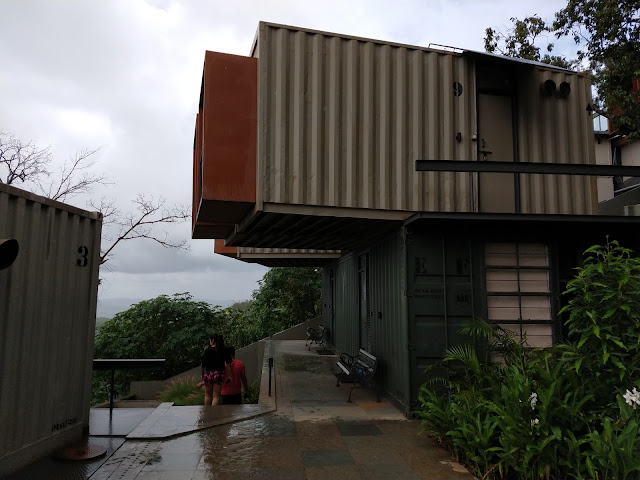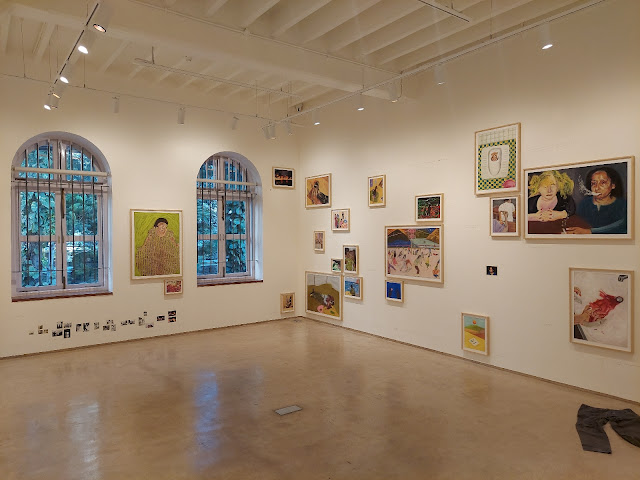Wednesday, March 20, 2024
Friday, March 01, 2024
Empirical Ironies / Of Mobilities
I cannot stop myself from thinking of the image of a person on a treadmill...A person running on a treadmill is mobile or stationary? During COVID, for example, when most people were stuck at home, mobility became a serious issue for those who are genuinely concerned about their health. Apart from fitness freaks, there are also diabetic, cholestrol ridden people for whom a regular walk is essential. What do we make of mobility in the city then? During such a situation, we found people finding different ways to move in their own homes, in turn, reinventing the geography of their own homes. The domestic interior became the extents of mobility - short or long, and movement got reinscribed into a new spatiality. The treadmill is a trope to compensate the spatiality of movement. It not only serves as proxy for unavailability of long distances to jog or trek, but also when it may not be possible to do so during extreme weather like rain or snow. Thus, the treadmill is a machine designed to keep you mobile while you are still at the same place, in the same environmental conditions. People further try to access this exterior environment by switching to music or watching something, feeling mentally transposed into the reality outside. The journey of running on the treadmill is just to be in the same place, but having traversed a long distance.
On the other hand, a month ago, my 76-year old friend broke her hip bone as she slipped while having a walk on her building terrace. Bedridden with stitches, she suddenly became immobile without being able to move her limb. However, basic daily activities like defecating, urinating, bathing, eating, opening the door also requires one to be sufficiently mobile. In the context of an aged body, these could mean a lot of effort. For my friend for example, a simple task of visiting the washroom became herculean. For what she took a minute, now she took more than ten. Besides, her mobility had to be aided by another person and a walker. While in the case above, the journeying long distance kept you stationary, the second case, in the second case, the walk from the bed to the bathroom became a journey. These contrapositions offer new ways to think of mobility beyond the assumed bodies, and allow to expand the meaning of mobility for a variety of bodies - while keeping in mind its literal physical understanding of movement on ground.
--
The above thoughts emerged in response to a discussion with German group of students who were in Mumbai to compare notes towards a framework for creating 15-minute cities where they mapped people's movements in different neighbourhoods across cities within a 500 m radius mapping which programmes are accessible and how may they be more efficiently worked out towards reducing environmental pollution caused due to vehicular movement and other aspects. the empiricism of their study was jarring to an extent where one of their findings speculated that the lack of a garden within the minimum time reach of people within an Indian neighbourhood may create a disincentive for a family to plan a baby while they continued to live in that area. I felt it was very reductive a proposition and also an unconsidered imposition of a certain spatial value that was based purely on numeric study, without taking into account cultural factors through which people choose to be in a given space. Nevertheless!














































